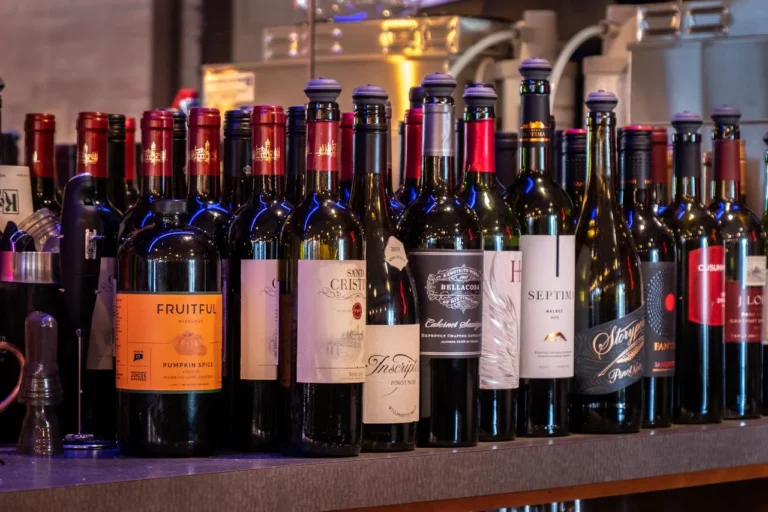
UNITE HERE Local 49, a labor union representing workers across various industries, has launched a new website dedicated to exposing environmental violations by Pacific Seafood Group, a prominent seafood processing company. The , aims to provide transparency regarding the company’s significant environmental impact and the violations it has accumulated over the years.
A Call for Transparency and Accountability
The website’s launch marks a significant move in shedding light on Pacific Seafood Group’s environmental practices, with the union urging the public to take notice. Aamir Deen, President of UNITE HERE Local 49, emphasized the importance of transparency in holding companies accountable for their actions. “The public has a right to information about environmental violations, especially repeat violations,” Deen stated. “Contamination of rivers and harbors with polluted wastewater is concerning to everyone who cares about our environment.”
The seafood processing giant has claimed in the past that it is “committed to setting the industry standard for environmental responsibility.” However, this statement stands in stark contrast to the series of fines and penalties Pacific Seafood Group has faced due to environmental violations. Despite its claim of environmental responsibility, the company has paid over $360,000 in fines over the past four years, following multiple incidents of pollution in various bodies of water in the U.S. and beyond.
Pacific Seafood Group’s Violations
Pacific Seafood Group, founded in 1941 and headquartered in Clackamas, Oregon, operates 40 facilities across the United States, Canada, and Chile. Despite its global reach and long history, the company has been repeatedly cited for environmental violations that have resulted in considerable fines and public scrutiny.
The violations in question have taken place across several states, including Washington, Oregon, and California, where the company has operated seafood processing plants for decades. Among the most concerning violations are those related to the release of untreated or improperly treated wastewater into local rivers, harbors, and sloughs, often exceeding permitted levels.
Seafood Workers Union UNITE HERE Local 49 Launches Bold Website Highlighting Pacific Seafood Group’s Environmental Violations

Some of the specific issues associated with these violations include:
- Wastewater Discharge Exceeding Permit Limits: Pacific Seafood Group has repeatedly been cited for exceeding the discharge limits set by environmental regulators for wastewater at its processing facilities. This includes excessive levels of contaminants that have affected local ecosystems.
- Untreated Wastewater Releases: On multiple occasions, the company has been caught releasing untreated wastewater into nearby bodies of water. This practice has serious environmental consequences, including contamination of aquatic ecosystems and threats to wildlife.
- Contaminants in Wastewater: The company has also been accused of releasing wastewater that contains various contaminants, including grease, oils, fish entrails, gloves, labels, and shell particles. These substances not only pollute the water but can also be harmful to the animals and plants that depend on the health of these water bodies.
Financial Penalties and Legal Consequences
Pacific Seafood Group’s violations have not gone unnoticed by regulatory agencies. The company has faced a series of fines for its environmental infractions. In the last four years alone, it has paid over $360,000 in penalties for violations related to its facilities in Washington, Oregon, and California. These fines were levied as a result of exceeding permit limits for wastewater discharge, releasing untreated wastewater, and discharging contaminated water into local bodies of water.
In addition to the fines from previous years, Pacific Seafood Group was also penalized with $250,800 in 2023 and 2024 for pollution incidents in Washington and Oregon. Specifically, the violations took place in Half Moon Bay, Washington and the Port of Brookings Harbor in Oregon, both of which are crucial ecosystems that have been negatively impacted by the company’s practices. These violations are still under investigation, and further penalties could be forthcoming as the cases progress.
Despite these ongoing legal battles and financial consequences, Pacific Seafood Group has made no public indication of significant changes in its practices. The company’s repeated violations and fines suggest that its commitment to environmental responsibility is, at best, questionable. This inconsistency between its public statements and its actions has led to calls for greater scrutiny from both the public and regulators.
A Community Impact
The violations have had a noticeable impact on local communities. Residents and visitors to regions like Half Moon Bay, Skipanon River, and Humboldt Bay have expressed concerns about the environmental degradation resulting from Pacific Seafood Group’s operations. In particular, the contamination of water sources has raised alarm bells about the health of the local ecosystems, which are vital to both the economy and the environment.
The website launched by UNITE HERE Local 49 offers a platform for individuals, including residents, local visitors, and Pacific Seafood Group employees, to voice their concerns about the environmental damage caused by the company’s operations. The union has invited these stakeholders to visit the site and share their personal stories, complaints, and experiences regarding the pollution.
The involvement of local residents and workers is critical, as it not only helps raise awareness about the environmental violations but also empowers those directly affected to take action. Many of the affected communities are heavily reliant on the health of these water bodies for fishing, recreation, and tourism, making the contamination especially troubling.

What’s Next for Pacific Seafood Group?
Despite the mounting penalties and public backlash, Pacific Seafood Group remains a significant player in the seafood industry, processing and distributing products to a global market. However, the company’s environmental record raises questions about its commitment to sustainability and corporate responsibility.
As pressure continues to mount from environmental groups, labor unions, and concerned citizens, Pacific Seafood Group will likely face increasing scrutiny from both regulatory agencies and the public. The ongoing violations and fines could ultimately tarnish the company’s reputation, making it more difficult for it to maintain consumer trust.
Furthermore, the company’s commitment to setting an industry standard for environmental responsibility will likely come under closer examination. The gap between its stated goals and actual practices may prompt calls for stricter oversight and further penalties, as well as a comprehensive review of its environmental impact across all its facilities.
For now, UNITE HERE Local 49’s website stands as a powerful tool in holding Pacific Seafood Group accountable. The union’s decision to create a platform for environmental transparency highlights the need for increased awareness and action. By shedding light on these violations, the union hopes to encourage greater corporate responsibility, protect local ecosystems, and advocate for a future where businesses are held accountable for their environmental practices.




